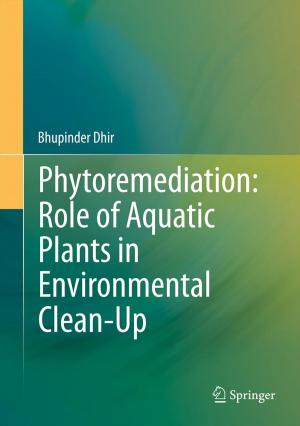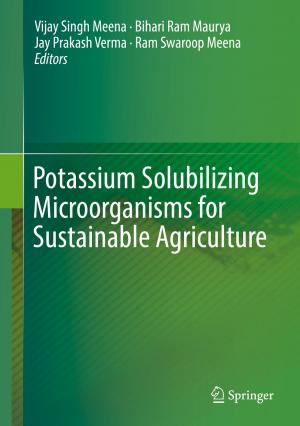Sustainable Horticulture in Semiarid Dry Lands
Nonfiction, Science & Nature, Science, Earth Sciences, Biological Sciences, Environmental Science| Author: | Shrikant Hiwale | ISBN: | 9788132222446 |
| Publisher: | Springer India | Publication: | March 16, 2015 |
| Imprint: | Springer | Language: | English |
| Author: | Shrikant Hiwale |
| ISBN: | 9788132222446 |
| Publisher: | Springer India |
| Publication: | March 16, 2015 |
| Imprint: | Springer |
| Language: | English |
This book discusses ways of increasing production/unit area by making full use of the soil and water under the harsh climatic conditions of semiarid areas. This leads to improved sustainability, increased availability of fresh produce, which is vital for human health and higher incomes for small and marginal farmers. Arid and semiarid areas account for almost 70 per cent of the total cropped area of India. In these areas physical constraints like low and erratic rainfall, high temperature, high wind velocity, low fertility, poor soil structure, salinity of soil and ground water all limit reliable crop production. In the absence of any type of aggregation, the soils are highly erodible, lack structure and have a very coarse in texture with low water holding capacity. Intensive agricultural practices, increasing population pressure, climatic changes, environmental pollution, loss of biodiversity, soil erosion, salinization and water depletion are all threatening the sustainability of agriculture. In view of the mounting demand for food, it is vital to link enhanced food production with nutritional security, conservation of natural resources, increasing farmers’ incomes, employment generation through agricultural diversification. Horticulture, particularly of fruit trees, can play a major role in solving the problem of nutrition, as fruits are rich source of vitamins and minerals and have antioxidant properties. Fruit trees, which are mostly deciduous, add leaf litter to the soil, and this ultimately helps to improve the condition of the soil. In addition, fruit trees are known to reduce soil erosion and reduce run off. The trees also play a major role in purifying the environment as they are the known carbon sequesters. Fruit-tree cultivation is a profitable preposition. There is no scope to increase the land surface; all increase in productivity therefore has to be from the available land. This means introducing cropping systems that can meet the basic food, fodder and fuel requirement of farming families.
This book discusses ways of increasing production/unit area by making full use of the soil and water under the harsh climatic conditions of semiarid areas. This leads to improved sustainability, increased availability of fresh produce, which is vital for human health and higher incomes for small and marginal farmers. Arid and semiarid areas account for almost 70 per cent of the total cropped area of India. In these areas physical constraints like low and erratic rainfall, high temperature, high wind velocity, low fertility, poor soil structure, salinity of soil and ground water all limit reliable crop production. In the absence of any type of aggregation, the soils are highly erodible, lack structure and have a very coarse in texture with low water holding capacity. Intensive agricultural practices, increasing population pressure, climatic changes, environmental pollution, loss of biodiversity, soil erosion, salinization and water depletion are all threatening the sustainability of agriculture. In view of the mounting demand for food, it is vital to link enhanced food production with nutritional security, conservation of natural resources, increasing farmers’ incomes, employment generation through agricultural diversification. Horticulture, particularly of fruit trees, can play a major role in solving the problem of nutrition, as fruits are rich source of vitamins and minerals and have antioxidant properties. Fruit trees, which are mostly deciduous, add leaf litter to the soil, and this ultimately helps to improve the condition of the soil. In addition, fruit trees are known to reduce soil erosion and reduce run off. The trees also play a major role in purifying the environment as they are the known carbon sequesters. Fruit-tree cultivation is a profitable preposition. There is no scope to increase the land surface; all increase in productivity therefore has to be from the available land. This means introducing cropping systems that can meet the basic food, fodder and fuel requirement of farming families.















